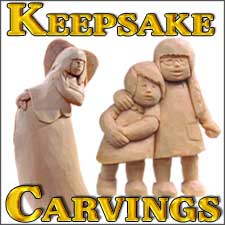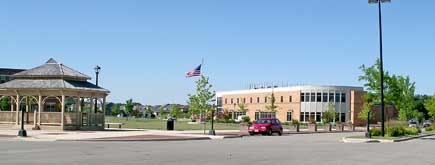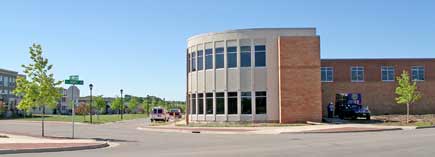Helpful information about
Sun Prairie, Wisconsin
Helpful information about
Sun Prairie, Wisconsin



The Sun Prairie YMCA has been running programs in the Sun Prairie area since the early 1970s. It has been located in what was formerly the middle school building on Main Street. The programs have grown from those in the 70s to serving over 3,000 families today.
The new, 48,000 square foot, Northeast YMCA, bult in the middle of "Smith's Crossing" on the South side of Sun Prairie, is scheduled to open and replace the present YMCA on Main Street on September 17th, 2007. You can easily get to the new YMCA by getting off of Highway 151 at Exit 100 and going South on Reiner Road about 1/4 mile. You will see the Smith's Crossing subdivision and right in the middle you will find the Norhteast YMCA. Turn into the subdivision on O'Keeffe Avenue and stay on O'Keeffe for a block or so.
You can also get here by taking O'Keeffe Avenue from West Main Street near the Walmart and the Pick and Save stores. Go South on O'Keeffe for about a mile or so to Smith's Crossing.
Northeast YMCA
1470 Don Simon Drive
Sun Prairie, Wisconsin 53590
837-8221

Membership fees vary from $25 entry fee and $20 a month for a child 5-12 years old to adults over aget 20 for $50 entry fee and $40 a month. There is a family rate for $50 entry and $60 a month. A senior adult couple can have a membership for $50 entry and $53 a month. These are 2007 rates.
From Wikipedia, the free encyclopedia
In 1844, the concept of a YMCA, which began among evangelicals, was unusual because it crossed the rigid lines that separated the different churches and social classes of England, making the YMCA a pioneer of ecumenism. This openness was a trait that would eventually lead to the inclusion of women and children and a culture of acceptance of people of different faiths and backgrounds. Today, the degree to which religion is emphasized in programs varies between individual YMCA associations. Generally, YMCAs are open to all, regardless of faith, social class, age, or gender.
Its name represents something of an anachronism, but it has been retained as a strong brand name.
Organization
The YMCA is organized as a federation of local associations and national YMCA movements. Within most countries, the local YMCAs are related primarily in terms of overall strategy and direction only. Volunteers and local employees operate the individual YMCA associations.
The federated model of governance has created a diversity of YMCA programs and services, with YMCAs in different countries and communities offering vastly different programming in response to local community needs. In North America, the YMCA is sometimes perceived to be primarily a community sports facility; however, it offers a broad range of programs such as sports, personal fitness, child care, overnight camping, employment readiness programs, conference centers and educational activities as methods of promoting positive values.
Mission
Although local variations in mission exist and the YMCA's collectively expressed mission has evolved since its founding, the international YMCA movement's mission historically has been one of promoting Ecumenical Christianity.
Paris Basis
Ninety-nine YMCA leaders of individual YMCAs from Europe and North America met for the first time prior to the 1855 Paris World Exposition to discuss the possibility of joining together in a federation to enhance co-operation amongst individual YMCA societies. This meeting resulted in the Paris Basis which is still a guiding principle of the organization today. Two themes resonated during the council: the need to respect the local autonomy of YMCA societies and the dogma that Christian churches are united and the YMCA is a way of manifesting that unity.
The need for the respect of local automony is expressed in the preamble:
The Committee has never upheld the opinion that all the Associations should adhere to the same forms and methods; on the contrary, it fully recognizes the necessity of an individual growth based on the local conditions and the influences of varying circumstances.
The main principle of the Paris Basis is expressed:
The Young Men's Christian Associations seek to unite those young men who, regarding Jesus Christ as their God and Saviour, according to the Holy Scriptures, desire to be his disciples in their faith and in their life and to associate their efforts for the extension of His Kingdom amongst young men.
The main principle of the Paris Basis is often stated as the entire basis, and the preamble and other articles are omitted.
There are two versions of the Paris Basis, one in French and one in English. It is thought that the French version is the more accurate representation of the agreement reached and that the English version was a result of a later transcription of notes after the meeting. Some adjustments were made to the English version to align it with the French version in 1955. In the French version, the last two words of the main principle are "jeunes gens", which more accurately translates as "young people" rather than "young men" (although all participants in YMCAs at the time were male)
Challenge 21
In 1998, at the 14th World Council of YMCAs, the World Alliance of YMCAs adopted Challenge 21 as its modern day statement of mission for the 21st century:
Affirming the Paris Basis adopted in 1855, as the ongoing foundation statement of the mission of the YMCA, at the threshold of the third millennium, we declare that the YMCA is a world-wide Christian, ecumenical, voluntary movement for women and men with special emphasis on and the genuine involvement of young people and that it seeks to share the Christian ideal of building a human community of justice with love, peace and reconciliation for the fullness of life for all creation.
Each member YMCA is therefore called to focus on certain challenges which will be prioritized according to its own context. These challenges which are an evolution of the Kampala Principles
North American Secularism
Many YMCAs in North America adopt a more secular mission than their counterparts in other parts of the world, although most still reference religion in the terms of promoting "Christian Principles" or "Judeo-Christian Values".
The national YMCA federation in Canada expresses its statement of purpose:
The YMCA in Canada is dedicated to the growth of all persons in spirit, mind and body and a sense of responsibility to each other and the global community.
The national YMCA federation in the United States expresses its mission:
To put Christian principles in to practice through programs that build healthy spirit, mind and body for all
This variation is in keeping with the concept of local autonomy expressed in the preamble to the Paris Basis, and both YMCA Canada and YMCA of the USA are active participants in the World Alliance of YMCAs.
Activities
The activities of the YMCA work to build healthy mind, body and spirit for all, and there are many activities that work to achieve these goals.
Healthy spirit
The first YMCA was concerned with Bible study, although the organization has generally moved on to a more holistic approach to youth work. Around six years after its birth, an international YMCA conference in Paris decided that the objective of the organization should become "Christian discipleship developed through a program of religious, educational, social and physical activities" (Binfield 1973:265). More recent objectives as found on the YMCA UK website include no reference to discipleship.
Healthy mind
Many colleges and universities owe their creation to the YMCA. Springfield College was founded in 1885 as an international training school for YMCA Professionals, while Sir George Williams University—one of the two schools that eventually became Concordia University—started from night courses offered at the Montreal YMCA.
Northeastern University (Boston, Massachusetts) began out of a YMCA in Boston, and Franklin University began as the YMCA School of Commerce.
The YMCA pioneered the concept of night school, providing educational opportunities for people with full-time employment. Many YMCAs offer ESL programs, alternative high school, day care, and summer camp programs.
American high school students have a chance to participate in YMCA Youth and Government, wherein clubs of kids representing each YMCA community convene annually in their respective state legislatures to "take over the State Capitol for a day." YMCA Youth and Government helps teens learn about and participate in civics in a real-world setting.
Healthy body
In 1891 James Naismith, a Canadian, invented basketball whilst studying at the YMCA International Training School in Springfield, Massachusetts (later to be named Springfield College). Naismith had been asked to invent a new game in a desperate attempt to interest pupils in physical exercise. The game had to be interesting, easy to learn, and easy to play indoors in winter. Such an activity was needed both by the Training School and by YMCAs across the country. It was a success from the very first game.
Naismith and his wife attended the 1936 Summer Olympics when basketball became one of the Olympic events.
In 1895, William G. Morgan from the YMCA of Holyoke, Massachusetts, invented the sport of volleyball.